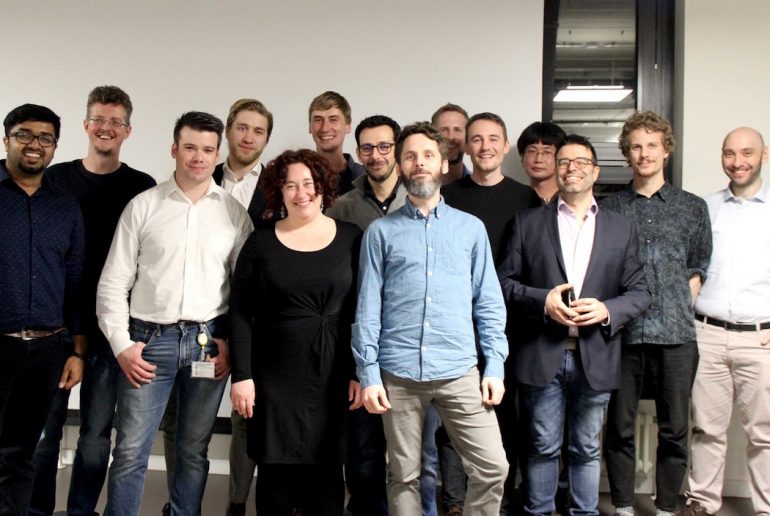AI Deep Dive, a three-month, full-time, retreat-style artificial intelligence course, is closing its San Francisco program, and moving to Toronto in August.
The course is targeted toward those looking for careers in AI and machine learning, who are hoping to level up their skill set. The program will have participants develop AI-based projects with the course’s industry mentors, and use those projects to seek out a career in the field.
“We’re thinking about what role we play when it comes to the marketplace in Canada when we think about the talent.”
“I want to prove beyond doubt that, literally, anyone can build useful tools with AI, and that these tools can solve real problems,” Jose Quesada, founder and CEO of AI Deep Dive, told BetaKit. “We are not talking about papers or secret projects inside the walls of a giant corporation. We are talking about difficulties everyday people have solved by themselves, using pre-trained models and open source libraries.”
The program is a spinoff from its parent program, Data Science Retreat, which operated in Berlin and San Francisco, and was founded in 2014. The San Francisco iteration of the program, called Deep Learning Retreat, is now closed, and is moving to Toronto under the new name, AI Deep Dive. The company claims 100 percent of its participants in its former Berlin and San Francisco iterations landed jobs within six months of course completion.
AI Deep Dive is forgoing San Francisco operations to focus on Toronto. The decision to move from San Francisco, arguably a global focal point for emerging technology, was based on several factors. The course chose Canada not only because it is an emerging tech community, but stated it is also looking to resolve the ongoing talent gap in Canada tech, as well as use Canada for its more favourable visa policy.
Combating the talent shortage
The 2019 Hays Canada Salary Guide, released in February, found that Canada’s ongoing skills shortage is the main thing negatively affecting productivity when compared to other areas of business. The report found that at least 76 percent of tech employers said they have experienced notable skills shortage, and in Canada’s tech sector, demand continues to drastically outpace the supply of skilled candidates. Danilo Tomanovic, AI Deep Dive’s vice president of sales, called AI Deep Dive an attempt to combat this talent shortage.
“Collaboration is absolutely key when it comes to execution,” Tomanovic said. “We’re thinking about what role we play when it comes to the marketplace in Canada when we think about the talent and the projects.”
He stated that the projects, though varied, will have a social impact focus. For example, one of the past projects from Data Science Retreat used deep learning, paired with a smartphone microscope, to create an app that can diagnose malaria from a blood sample. Another project developed a fake news detector that could expose fictitious new stories in the tech world.
Canada’s open visa policy
Another reason Quesada chose to move the course from San Francisco, was because of Canada’s visa policies. He said in the US, an H1B visa would be tied to whichever company a participant was working for. This would mean taking time off to study could result in losing that visa.
“We need people with talent, willpower, time, so it’s tough to add ‘visa’ to the list of prerequisites.”
“We need people with talent, willpower, time, so it’s tough to add ‘visa’ to the list of prerequisites. In the US, it kills the business model. In Canada, not so,” Quesada said, noting that AI Deep Dive also now runs on an Income Share Agreement (ISA), which he argued means money is no longer a prerequisite for program applicants.
An ISA is a tuition model that recently arrived in Canada, with coding school Juno (which recently rebranded from HackerYou) being the first to adopt the tuition model. The model covers the cost of tuition until the student begins work, and requires them to pay a percentage of their income for a fixed number of years.
The model has not gone without controversy, however, as some schools with ISA models could have participants paying significantly more than the original price of tuition. AI Deep Dive’s model would require participants to pay up to 1.3 times the original fee, which Tomanovic argued is significantly lower compared to other ISA models.
‘Toronto is having a moment’
The third reason the company zeroed in on Toronto, was because of its emerging reputation in the AI scene. With startups like Element AI and hubs like the Vector Institute and programs like that of Creative Destruction Lab, Tomanovic, who comes from a career on Bay Street, said he believes Toronto is already the “centre of the world for AI.” Quesada said that Yoshua Bengio, one of the ‘godfathers of AI,’ was also instrumental in helping the course come to Canada.
RELATED: Yoshua Bengio explains the limits and potential of AI at #Activate18
“When I first met Yoshua Bengio and told him about what we do, he immediately got it,” Quesada said. “He helped us land in Canada, he went beyond what anyone expected. He’s not alone believing in ‘AI for good.’ Canadian society is ready for what’s about to happen. I think as hyped as AI is today, we have underestimated its impact in the hands of the common man.”
“Toronto is having a moment as the centre of AI globally,” Tomanovic said. “We see ourselves as up-skilling the number, depth, and breadth of the AI talent in Toronto and Canada.”
AI Deep Dive’s first cohort will be limited to 12 participants, specifically, six men and six women. Quesada said about 10 percent of applicants end up getting accepted to the course. The first program will take place in Queens Quay Terminal at Toronto’s waterfront, beginning August 5.
Image courtesy AI Deep Dive via Facebook


